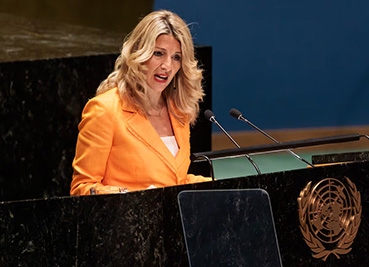The initiative was promoted by Yolanda Díaz, Spain’s Minister of Labour and Social Economy, and emerged as a result of the Ibero-American Meeting on the Social and Solidarity Economy, held in early September in Santa Cruz de la Sierra (Bolivia). The event, organized by AECID and the Ministry of Labour and Social Economy, led to the adoption of this important agreement, which was spearheaded by CIRIEC-Spain through its director, José Luis Monzón.
Professor Monzón notes that in both the SNA-2008 (used globally) and the ESA-2010 (for the European Union), the social and solidarity economy is not visible, as it is dispersed across different institutional sectors of national accounts. “This absence represents a serious obstacle to the development of national statistics based on homogeneous criteria and standards, which would allow for meaningful international and temporal comparisons,” he warns.
The letter explains that both the current Chapter 23 of the SNA-2008, dedicated to nonprofit institutions, and the ‘Satellite Account on Non-profit and Related Institutions and Volunteer Work’ (UNSD, 2018) define concepts and boundaries that differ from those of the social and solidarity economy.
It also recalls that the United Nations General Assembly, in its Resolutions 77/281 of 18 April 2023 and 79/2013 of 19 December 2024 on promoting the social economy for sustainable development, adopted a definition that unifies and delineates a widely recognized and scientifically supported concept of the social and solidarity economy. Both resolutions explicitly encourage States to develop national statistics that give visibility to the SSE.
“The enterprises and organizations that make up the social and solidarity economy represent an institutional narrative of the economic system with distinct and defining features, inspired by the values and principles of historic cooperativism as formulated by the International Cooperative Alliance (ICA),” the signatories state.
For all these reasons, they call for the inclusion of a chapter on the social and solidarity economy in the ongoing UN revision of the SNA-2008.
Professor Monzón concludes that this inclusion “would place the social and solidarity economy on the map of national accounts worldwide.”
The letter was signed by Yolanda Díaz, Spain’s Minister of Labour and Social Economy, together with the Ministers of Labour of Brazil (Luiz Marinho), Colombia (Antonio Sanguino), Costa Rica (Andrés Romero), Honduras (Wilmer Fernández), Portugal (María del Rosario Palma), and Uruguay (Juan Castillo).
It was also signed by Agustín Mariano Quinchao, President of the National Institute of Associativity and Cooperativism of Chile (INAC); Arianna Burgos, Director General of the National Institute of Popular and Solidarity Economy (IEPS) of Ecuador; and Eldaa Catalina Monreal, Director General of the National Institute of Social Economy (INAES) of Mexico.







